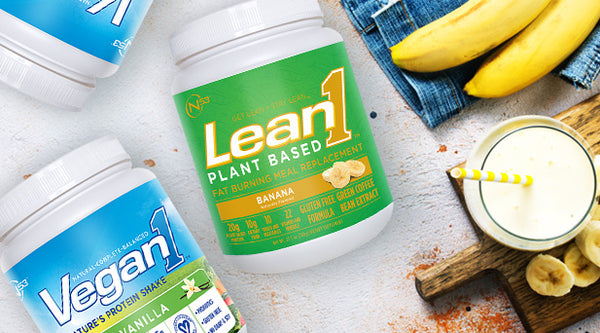- 2026 ›
-
- ›
-
- ›
-
- ›
-
- ›
-
- ›
-
- ›
-
- ›
-
- ›
-
Getting to Know Your Different Organic Protein Shakes

Organic protein powders can offer a range of advantages over their mainstream counterparts, if you know what to look for.
There are protein powders, and there are organic protein powders, the latter having a wide range of advantages over the former. Organic protein powders are typically either plant-based or whey, each offering different benefits.
Here are the similarities and differences of each one:
Plant-based protein powder
The most common source of plant-based protein powders are peas, rice, hemp and sunflowers. They may come in single-source variations and blends. Plant-based proteins are denser in nutrients than whey protein powders.
They also contain many other essential vitamins and minerals, aside from just protein. Adequate amounts of zinc, potassium and iron are critical to healthy brain and muscle function. Another notable benefit is that many organic plant-based protein powders offer a sufficient ratio of omega 3's and omega 6's fatty acids for the human body.
Athletes often turn to plant-based protein powders because they fuel athletic performance while protecting from digestive distress. Plant-based proteins typically contain more fiber and other enzymes that aid in digestion, making them easier for body absorption.
Those who are lactose-intolerant can usually tolerate plant-based protein powders. Most organic plant-based protein powders are hypoallergenic, making it unlikely they will produce a negative response in the body.
Whey protein
Whey protein is from milk. Although it is typically offered in a concentrate, an isolate or a hydrolysate, whey protein concentrates are the most popular. The difference between the three is in the way the powder is processed.
Whey protein is a complete protein, making it an excellent choice to fuel workouts and help people lose weight. Many athletes love whey protein because it is full of essential amino acids that help muscle synthesis. In fact, the branched chain amino acids in whey protein actually promote muscle growth.
Organic whey protein does tend to offer more protein per serving than its plant-based counterparts. While it does offer calcium, B vitamins and amino acids, whey protein isn't quite as nutrient-dense as plant-based protein.
They do, however, contain ACE-inhibitors called lactokinins, which have been shown to help lower blood pressure. It has also been shown to help moderate blood sugar, making whey protein a very effective supplement for those managing diabetes.
Finding what's right for you
Finding the right protein powder for your needs can be tricky. You must first consider your overall health. Do you have diabetes or high blood pressure? Are you lactose intolerant or do you have difficulty digesting dairy products?
If you answered yes to the first question, you probably want to opt for a whey protein powder. If you answered yes to the second question, then a plant-based protein may be of more benefit to you. Aside from your dietary needs, you'll also want to consider your goals.
Are you looking to build muscle, lose weight or just live a healthy lifestyle? Considering both your goals, dietary needs and restrictions will help you choose the best protein powder for you.
Opt for organic
Whatever your goals, it is always best to opt for organic protein powders. Organic options are higher quality and tend to have fewer fillers in them. One Consumer Reports study found alarming amounts of toxic heavy metals in many non-organic protein powders.
It is best just to steer clear of these and opt for organic. Nutrition53 makes a fantastic 100-percent natural vegan protein powder that is packed with antioxidants, enzymes, vitamins and minerals. If you are looking to add some plant-based protein to your diet, give it a try.
Resources:

